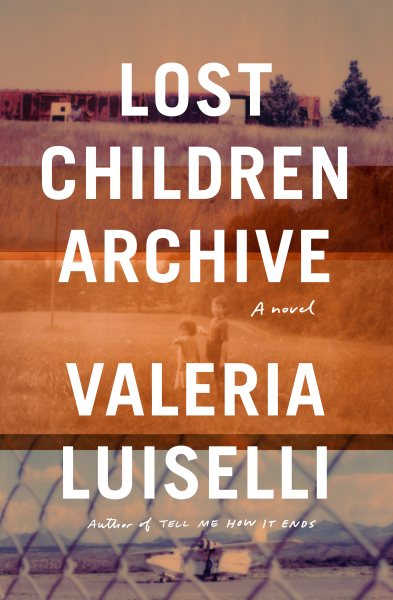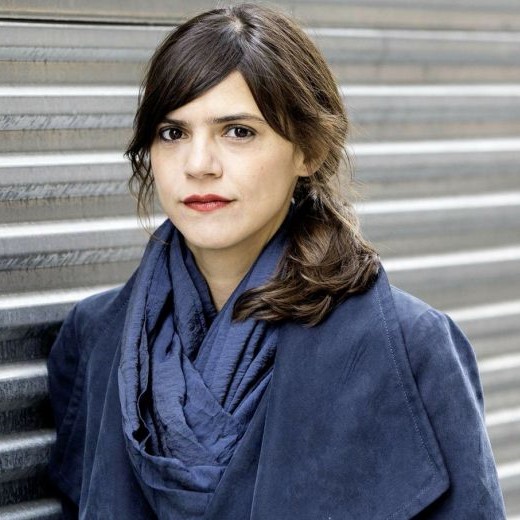Interview by Jana Hoops. Special to the Clarion-Ledger (February 10). Click here to read this interview on the Clarion-Ledger’s website
 Valeria Luiselli’s newest novel, Lost Children Archive, is a penetrating work that tells one family’s complicated story as they drive cross-country from New York to Arizona, even as she deftly draws contemporary political and personal struggles together in the mix.
Valeria Luiselli’s newest novel, Lost Children Archive, is a penetrating work that tells one family’s complicated story as they drive cross-country from New York to Arizona, even as she deftly draws contemporary political and personal struggles together in the mix.
Born in Mexico, Luiselli grew up in South Korea, South Africa, and India, and has enjoyed an award-winning career as a writer of both fiction and nonfiction works.
She has authored the novels Faces in the Crowd, The Story of My Teeth, and Tell Me How It Ends: An Essay in Forty Questions, and the essay collection “Sidewalks.” She has captured two Los Angeles Time Book Prizes, and an American Book Award; and is a two-time nominee for the National Book Critics Circle Award.
Luiselli’s work has appeared in the New York Times, Granta, McSweeneys, and other publications. She now lives in New York City.
Your new novel, Lost Children Archive, chronicles a family’s road trip from New York City to Arizona that served two purposes. The first was to provide research opportunities for both parents’ projects as audio documentarians, with his focusing on the last leaders of the American Apache Indians, and hers on the child refugee crises from the court of immigration in New York. The journey was also a chance to share with their children some lessons of American history about the government’s treatment of Native Americans, as well as opportunities to personally experience what migrant children at the U.S. southern border were encountering. How did you develop the idea of this detailed and intense storyline?

Valeria Luiselli
When I begin a book, I have no idea of what I am going to do. I never think in terms of plot, or even overarching topics. All I have is a question, or perhaps a set of questions, and some intuitions about how to possibly explore them. One of the fundamental questions that drove me to write this novel had to do with the way that we tell stories to children, and in particular, the way we talk about history in relation to the present. And, in turn, the way that their internalization of those stories and versions of history may or may not make the world a less confusing and less terrifying place.
This novel, if anything, is about the process of composing stories, of threading voices and ideas together in an attempt to better understand the world around us. I don’t see this as a novel about the refugee crisis, or about Apaches—but a novel about childhood, and the place of storytelling in the often daunting and sometimes solitary experience of being a child.
An important subplot in this narrative is the crisis within the family itself: the husband and wife, who are the parents of two children—all of whose names are never given—are in an unhappy marriage whose future is tenuous, at best. How does this affect the family dynamic during and after this trip, especially for the children?
I guess the crisis within the family, as they travel across the country inside their car, and the socio-political crisis unfolding around them, are in constant echo of each other. The novel is very much about the blurring of boundaries between our private sphere and the political/public realm.
We live in times where we can no longer draw a sharp division between the public and the private, between political life and family life. The two intersect and collide constantly, and we all have to figure out how to keep our feet on the ground and our heads clear.
Tell me about the decision of the main narrator (the mom) to change her documentary project from telling the story of “the crisis at the border” to that of the “lost,” or “refugee” children.
More than a change, it’s a development prompted by her observations. She begins to pull on that thread when she starts spending time in the New York immigration court. Then, as the family plans to drive southwest, and she begins to learn about the many layers of the crisis, she shifts her attention to the detention centers along the border. Finally, as she gets closer to the border, she starts thinking about all the children who cannot actually tell their story, who cannot actually be seen and cannot actually be heard—because they are either locked away indefinitely, or have gotten lost, or have lost their lives.
What the novel documents in this regard are simply the many layers of a crisis, and we travel through them, as readers, while the narrator herself is learning how to move across them.
During the course of the story, the couple’s two young children become lost on a side trip that they set out on alone. They wind up experiencing circumstances similar to those of refugee children at the southern border of the United States. How did this experience ultimately influence the future of this family?
When I was writing Lost Children Archive, I often found myself thinking about reenactment, both as a weird cultural practice—people reenacting historical moments—and as a more psychological, personal, internalized event, through which empathy for long-gone peoples and communities can perhaps be achieved.
In the novel, the children constantly reenact historical events, but they mix them all up with the present. And in their confusion of past and present—especially the instances of brutal violence against Native Americans and the current treatment of undocumented people—they are able to understand political violence more clearly, and feel it in their own skin, so to speak.
Do you have other writing projects in the works at this time?
I’m doing research on mass incarceration and immigration detention. But I’m still in very early stages of the process, just taking notes, reading a lot, thinking. I have no idea what will come of it. And I am not in a hurry.
Valeria Luiselli will be at the Eudora Welty House on Pinehurst Street on Thursday, February 14, at 5:00 p.m. to sign and read from Lost Children Archive. Lemuria has selected Lost Children Archive as one of our February 2019 selections for our First Editions Club for Fiction.


Comments are closed.